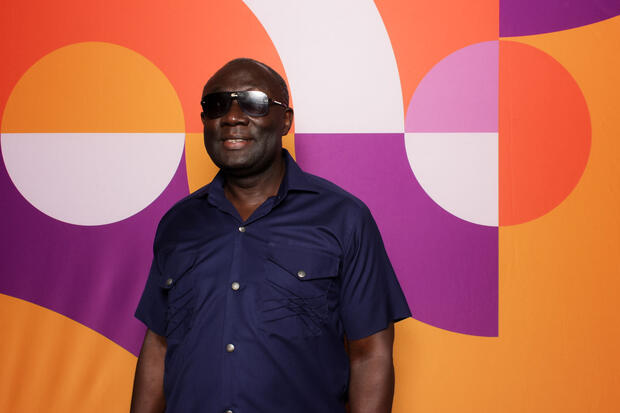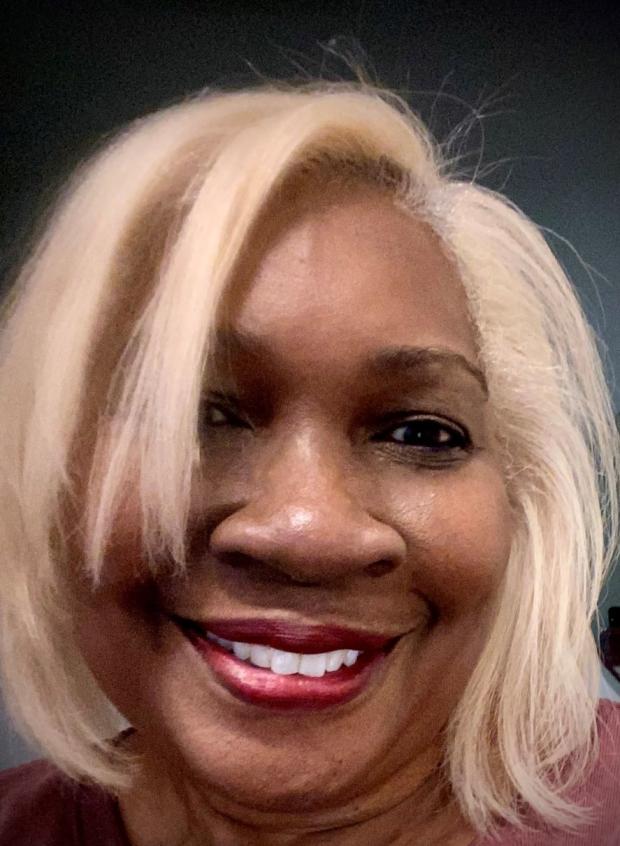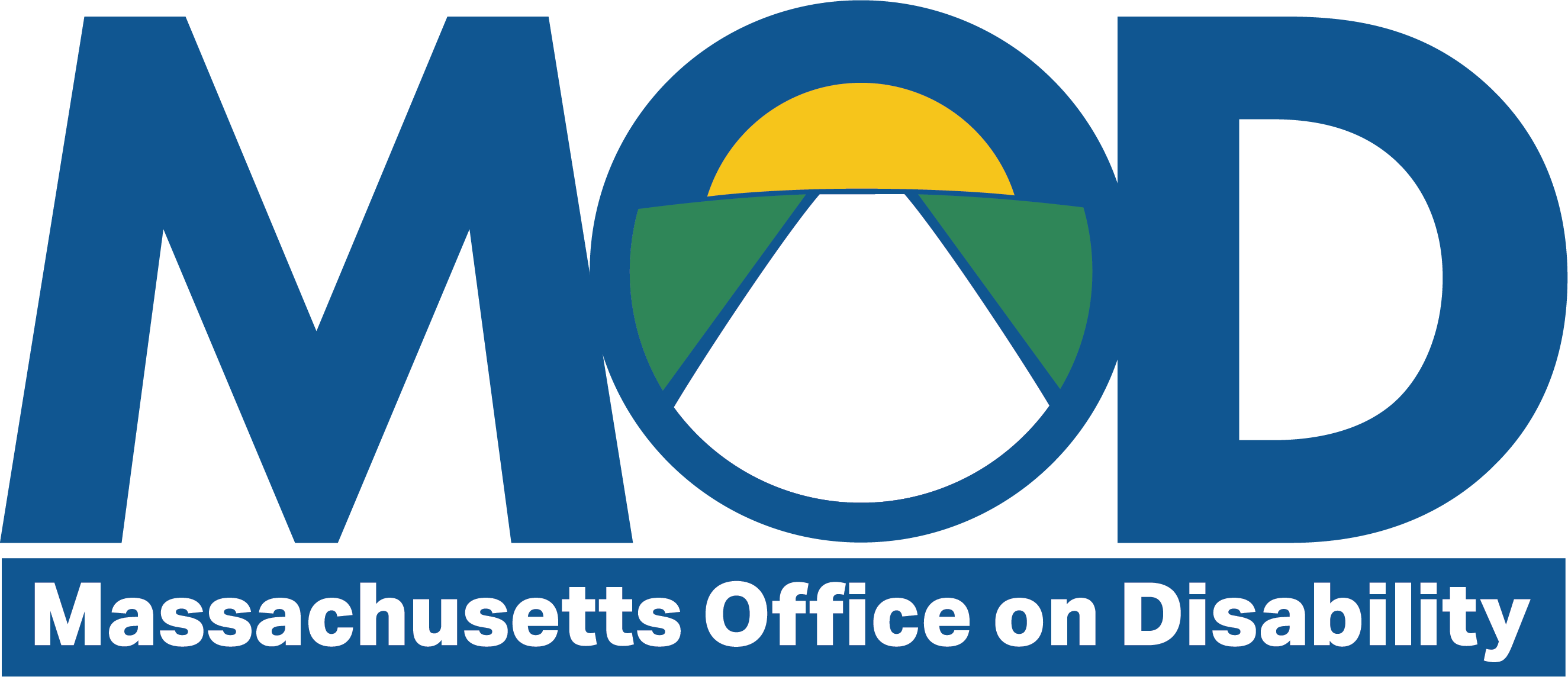- Massachusetts Office on Disability
The Black and disability rights movements have always been intertwined, and members of both communities have played a pivotal role in pushing forward justice for all. Many of these leaders are right here in Massachusetts, making a difference through public service. MOD conducted interviews with members of the Massachusetts Black disability community who have worked in state government to hear about their experiences and words of wisdom for the next generation.
Kobena Bonney
Kobena Bonney immigrated to the United States from Ghana to finish his undergraduate studies. As a young blind man studying law and political science, he sought more opportunities and resources to accommodate his disability. In Ghana, Kobena relied on his friends and other students to read his school notes to him and otherwise support him in his educational journey.
That sense of community support has been a theme throughout Kobena’s academic and professional career. As a high school student, Kobena formed an association for blind students. He has been active in Black, disability, and immigrant organizations throughout his adult life.
Kobena has found deep fulfillment in the community he’s found and serves through these organizations. As a Board Chairman at Activated Massachusetts African Community (AMAC), Kobena works to bring together different African organizations to work together on issues that affect the African community at large. He emphasizes that Black and immigrant communities have shared concerns and are stronger together. AMAC works to get the African immigrant community involved in American political and community life and provides mutual aid and education to community members. Kobena is proud that AMAC mobilized to provide laptops and PPE supplies to families during the COVID-19 pandemic.
Today, Kobena works as the Assistive Technology Program Coordinator for MassMATCH. In addition to his regular job duties, Kobena has trained his fellow colleagues with disabilities on assistive technology to help them succeed in their careers.
Although Kobena had a keen academic understanding of the social construction of race before immigrating, its influence on every aspect of life in the United States was still quite eye-opening. “The deck is stacked against you as a person of color,” he explained. Kobena urged young immigrants to get involved with their local community in the United States, while also connecting with immigrants from their own and other countries.
Brenda Clark
Brenda Clark retired in 2018 after a long career in disability services, beginning as a Multicultural Service Coordinator with the Boston Center for Independent Living. Her work was focused on outreach to people of color and educating people about the Personal Care Attendant (PCA) Program. She then worked for the Massachusetts Rehabilitation Commission (MRC) for 30 years, helping people to find, prepare for, and maintain employment.
Brenda grew up in a large family and was diagnosed with polio at a young age. Her disability has progressed and affected her in different ways throughout her life. “I used to think, ‘I can’t write with my hands. What am I going to do? How am I going to keep up with certain things?’”, she shared. Thankfully, Brenda learned a lot about her rights, accommodation options, and self-advocacy when she went to college. Her college friends with disabilities inspired her to speak up for disability rights. She went on to obtain a graduate degree, the second in her family to do so.
Brenda’s drive to speak up is still strong. “I think there’s always going to be a need for more leaders who are people of color to improve things and to be brave and not to give up and to continue the fight,” she shared, “We’re still fighting sometimes just to purchase housing, we’re still being discriminated against in so many things.” She stressed that bringing together and appreciating a diverse range of cultures is the key to justice and beauty in life.
Dean Denniston
“I was like a fly on rice” – that’s how former Civil Rights Director at the Executive Office of Health and Human Services Dean Denniston describes his early years working in state government. “It was rare for me to walk into a meeting and see somebody else with a disability or a person of color.”
Dean’s career in state government began in 1980, ten years before the passage of the ADA and with the Civil Rights Act of 1964 in recent memory. He came into state government after working with the Black Panther Party in Kansas City, Missouri, helping to set up the country’s third-largest free breakfast program for children.
At that time, career options for a Black, blind young man were limited. Dean left the world of disability services for a job in human resources with the Department of Social Services, partially as an effort to show that people with disabilities could work in a diverse range of fields. Dean shared that he went into job interviews assuming people would never hire him. He made it his mission to show employers “what they could have had”. He is proud that, once in state government, he never again had to actively search for a job; his hard work spoke for itself, and Dean was approached with job opportunities at other agencies.
Dean’s advice for young people is to change “buts” to “ands” – he emphasized that the skills people with disabilities bring to a job are in addition to their disability identity, not there in spite of it.
Dean cautioned that “racism is alive and well in this country, and it exists in state government like everywhere else.” He is hopeful that progress can be made. By the time Dean retired in 2009, he was happy to see that more people of color and people with disabilities were working in state government. He saw it as a good sign when he met a blind state employee he had never met before; it showed that the community was growing.
Larry Haile
Officially, Larry Haile serves as an ADA Coordinator for the Executive Office of Health and Human Services (EOHHS) – but he describes himself as a “jack of all trades”. His lived experience as a blind man has provided valuable perspective to support people with disabilities in his work. At the same time, Larry’s work has provided an opportunity to learn about the diverse experiences and needs of the wider disability community. Reasonable accommodations include “more than just assistive technology,” he shared, “there is so much more – it’s been a learning experience”.
Prior to joining EOHHS, Larry worked for six years as an Accessibility Coordinator at the MBTA. He was instrumental in developing the travel training program to encourage more people with disabilities to move from paratransit services to the fixed route system. Recognizing a need within his own experience and those of others he worked with, Larry piloted an indoor navigation program to test using Near-Field Communication (NFC) and Bluetooth Low Energy (BLE) tags, Braille signage, and more to ease navigation within stations.
NFC and BLE tags are small electronic devices that store data. The NFC and BLE tag pilots allowed riders to download an app that recognized the tags and would alert users with information on the tag whenever they were nearby (for example: “bus stop in 30 feet, outbound to Downtown Crossing”). Larry has also learned a lot from navigating public transportation in other countries. He shared that, in Madrid, many transit stations have Braille messages on stair railings indicating what is at the bottom or top of the stairs.
One of Larry’s fondest memories comes from his work as a Travel Trainer in the D.C. area. He once had an overwhelmed teenage travel trainee trying to navigate which of three nearby bus stops was the correct one for his trip. Larry stepped back and empowered the trainee to problem solve on his own. A few weeks later, Larry heard that the trainee, frustrated after an argument with his mother, said he was running away but would “be back before dinner”. Through laughs, Larry said that he remembered his own desire for independence as a teenager, and was thrilled the trainee had gained the skills to confidently navigate and find his way home by dinnertime.
Thelma Williams
Thelma Williams has worked for the Massachusetts Commission for the Blind (MCB) for over 15 years. She began as a Regional Director for the Northeast region and was appointed as Chief of Staff in 2022. She also serves as MCB’s DEI Chairperson. Thelma lives with a rare condition called CMT. CMT is a progressive condition which has affected Thelma in different ways throughout her life.
Thelma has found great fulfillment and joy in mentoring other professionals. She once had a client who hadn’t worked in the decade since losing his vision. Thelma helped the client find a job within four months, and they have now held that job for over three years. One of her proudest moments was when a mentee of 11 years took over Thelma’s Regional Director position when she was appointed as Chief of Staff. In 2020, Thelma was awarded the Governor Paul Cellucci Award for Leadership and Mentoring in State Government in recognition of her extensive mentoring work.
Thelma currently serves as the MCB Executive Liaison to several Executive Office of Health and Human Services (EOHHS) statewide initiatives. She was recently selected by the EOHHS Center for Staff Development to participate in a pilot mentoring program – EOHHS MentorConnect, geared to professionally develop current EOHHS Managers. In addition, in January 2024 she became the Governor’s appointee to the Perkins School for the Blind Board of Trustees. Among many other things, Thelma is a published poet, co-author of an article in the Psychiatric Rehabilitation Journal and mentor to both abled and disabled individuals. In her leisure time, Thelma enjoys writing, singing gospel music, and encouraging our future young leaders.
Thelma’s advice for young professionals in the Black and disability communities is to “never give up on yourself” and to “look for someone who looks like you and who can inspire you”.


